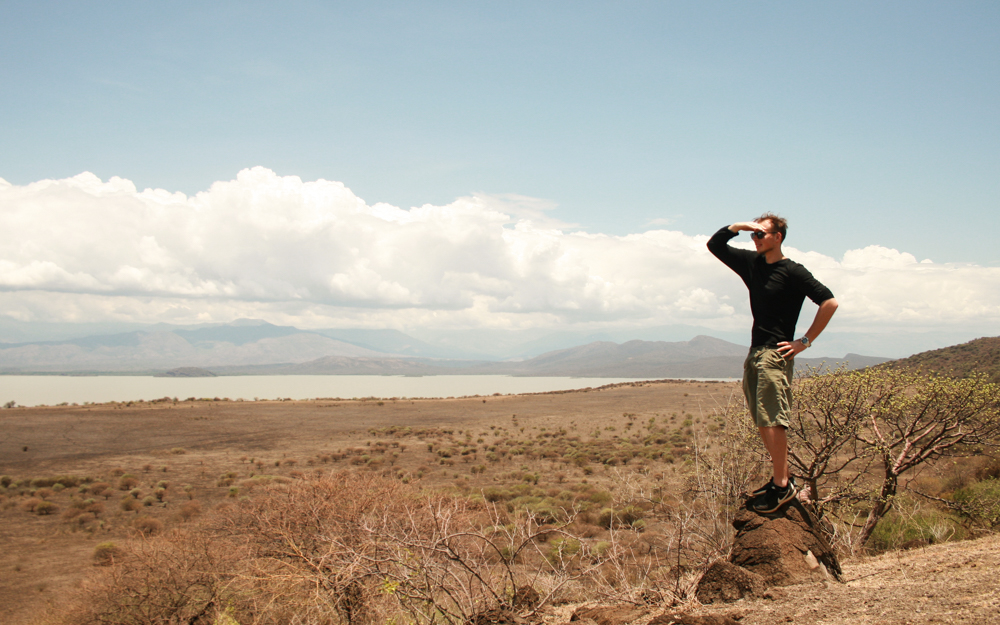
The wisdom of life consists in the elimination of non-essentials
Very few things are essential. Everything else is noise. Our job is to filter through that noise until we get to the essence. Shape your own destiny, design your life plan, create opportunities because people have a choice to, what thoughts and images they are exposed to.
ABOUT ME
Hi There! I’m happy to have you here and thank you for visiting. So as this is not any kind of blogging or stuff, I guess you are here because you wanna learn something more about my professional career. If you are a recruiter, I hope this will not disappoint you but everything official has been written in my resume. I am want to make this section a little bit more personal just to give you a chance to know me as a person.
Having that said, let me go straight to the point. My early life, in a nutshell, is a quite regular life of a guy from a large middle-class family form post-communist Poland. I born in this country, I grow up in a small city, not far away from the Polish capital. I moved to Warsaw for my studies in 2008. I always was a scientific mind so I have decided to study Electrical Engineer. I wouldn’t say that I was ever passionate about electricity but engineering has been always my thing. The decision to go for electrical specialisation based rather on my youthful enthusiasm in Physics, heated up by my parents who hoped to have the first technical graduate in our family.
The enthusiasm cooled down quickly after I clashed with the obsolete education system, and evolves into adolescence angst. After my bachelor's, I have decided to reprioritise my goals. I always believed that some things only taste good at a certain age and you have to act to don’t lose your opportunity. I felt more and more attracted to travel but I didn’t want to be just another guy who wants to leaves his middle-class existence in pursuit of freedom (what a unique, unusual story in the 2000s said nobody ever). Being in a foreign country for a reason was always something that made my journey complete and meaningful. This is why I have decided to join one of the biggest Non-Government Organization in Poland and see how it is to bring the change in the developing world… and guess what? I got drawn into it and forgot about anything else.
HUMANITARIAN AID AND DEVELOPMENT SECTOR:
Did you ever know that Non-Government Organizations are the whole ‘development sector’ stuff? I didn’t. And OK, now it seems to be obvious but it was not at that time and believe me or not it was not so popular in Poland like in Western Europe or Scandinavian countries.
I have joined the Polish Center for International Aid first as a volunteer. People choose to volunteer for a variety of reasons and mine was quite selfish. I was not a type of person who feels that have to give something back to the world or make a difference to the people around me. I just wanted to find a cheap way to travel and to be in a different cultural context, interact with locals, and sink in as much as possible of different flavors of customs and cultures. When I’m looking back now, I have to admit that I had been fascinated and enchanted how colorful and diverse the world is, and this was my main driver. Anyway, regardless of the motivation, the voluntary provides a unique opportunity to develop new skills and build on existing experience and knowledge. You will always find something challenging and rewarding.
After volunteering in South Sudan what was in 2012, I got an offer for a professional contract. And this is how I started to work for an international NGO. With a solid engineering background, I started making innovation and technology projects for global development. I worked across the world. I spend over 6 years implementing aid projects in more than 12 countries. Mainly in Africa. This was the reason why I moved to Ethiopia and spent over 3 fantastic years in Addis Abeba.
NGOs are renowned for having dedicated staff who are happy to go beyond the call of duty without a second thought. You often work long hours, evenings, and weekends, and most you could earn far more in a similar role in the private sector. But people working within the non-profit industry have normally chosen to be there and have decided that they would rather have job satisfaction and work towards something positive than going home early with a bigger paycheck. Of course, not everyone within the sector is like that, but a decent proportion fit into the above description.
For sure working for an NGO can be a challenging activity. However, it is also a very satisfying job. In my case, it contributed highly to increase my professional skills in many dimensions. Unpredictable delivery environment and tough funding requirements from federal donors give you a dangerous mix. It requires your strong flexibility, adaptability to the changing environment, and fast learning.
I had to learn a whole set of new skills like for example accounting, finance tracking, research, raising and re-distribution of funds, diplomacy on a high and low level, or project proposal writing. As well I strengthen my qualities like teamwork, cooperation, and leadership. Joining an NGO was like an investment in my future. I developed professional skills to meet the demands of the role and of the organization. Of course, it also broader your horizon. By clashing with smaller and bigger problems in different cultural contexts, I got a width perspective which makes an impact on the way how I pursue my objectives and make decisions. As a part of a team, I not only gained leadership skills, I got a unique chance to employ them too. Everything depends on how well you learn to motivate people and how you cope up with pressure. I learned and experienced working with people of different cultures. It also increased my ability to adapt to different cultural demands, behavioral expectations, and impact my ability to handle sensitive situations. I learned from there great soft skills, respect to other cultures, culture difference management, and flexibility when it comes to goal achievements.
But like in every story there is another side to this coin. The relationship between a donor and a non-governmental organization (NGO) is almost always unequal. Donors can very easily impose their agendas, very few NGOs will dare to criticize wrong policies. Submissiveness is pragmatic. Criticism of policies becomes a problem because “it looks bad for donors and officials”. Donor institutions, therefore, react defensively to criticism. Donors prefer easy partners – and it is easy to find them since competition for funding is tough. Project-writing is now big business, so most projects look more or less the same. Submissiveness pays off, so too does dishonesty. The incentives for dishonesty are great. Funds (from the European Union and others) are generally badly designed, so honesty can become dangerous. Most funding is for short-term projects. Most projects do not include institutional support. Many require a serious co-funding component.
After more than 6 years in the industry, I was simply tired of it. I never decided to leave an NGO but I didn’t want to make a living doing something like that. So I had to redirect my career which I did by joining IT.
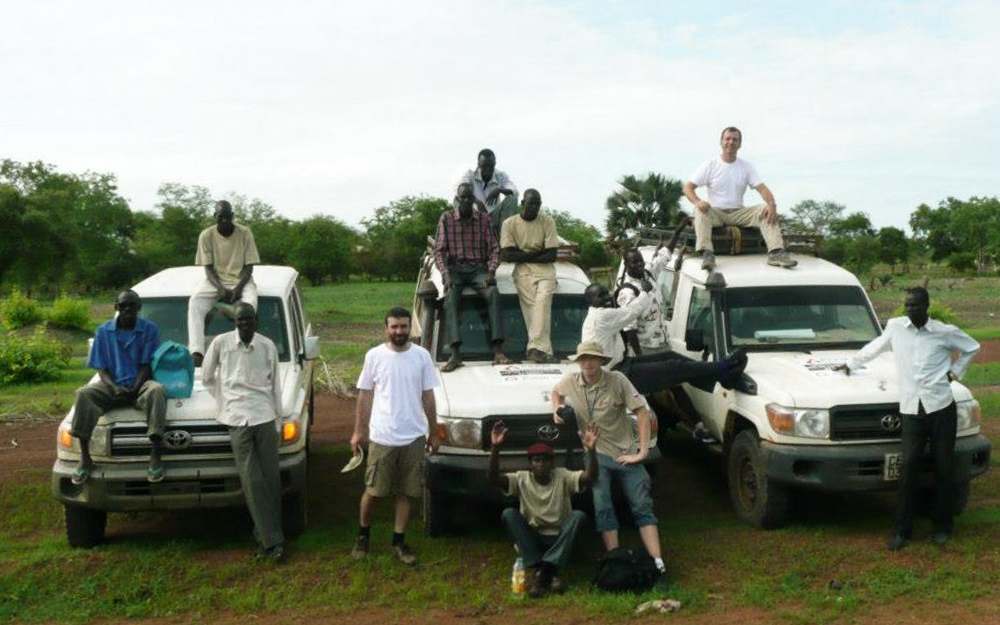
My first volunteering in 2012. This was a life-changing experience that widely opened my mind to the world.

South Sudan in 2019. Me with beneficiaries of PCPM feeding center. Even after I joined big firms like UBS, I do visit my projects around the world. This is to me something more than just a job.
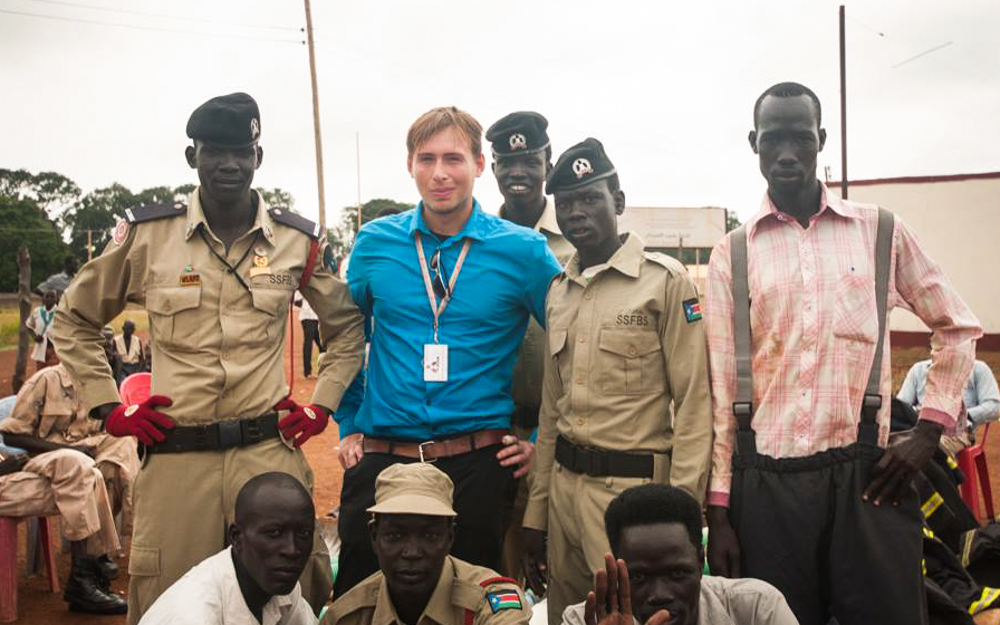
Graduation ceremony of the very first fire fighters of Norther Bahr el Ghazal. Unfortunately, the civil war makes it impossible to continue the project.

On the way to Nepal in response to the 2015 earthquake. Coordinating in the humanitarian crisis is a unique chance to work under the pressure and train your stress resilience.
PMO AND IT ANALYST FOR UBS:
Of course, shifting to IT was not something out of blue. I learned basic programming in my studies. As said engineering was always my thing, and during my years spent in Africa, with limited access to other technology, I turned my interest more into IT. I build my first WordPress website in 2014 and then on I did continue to lern new stuff like HTML, CSS, PHP, and JavaScript from scratch. In 2016 I started a small woo-commerce business and learned some on-line marketing with Google Ads and Facebook. In 2018 I have decided to begin another University degree in Information Technology specialization which I’m about to finish in the beginning of 2021. In the same year, I moved from PCPM to UBS and begin a new chapter in my life by collecting professional experience in IT in one of the biggest Bank in the world.
But the rout which I took in UBS was not easy too. I always want to work on the technical side of the delivery, but actually I had no documented experience in this. With my project management background, I was more fit to a Project Manager or Project Management Officer positions and this was as well how the recruiters categorized me. From these two I have decided to go for a PMO. I didn’t want to start from something absorbing. I rather preferred to take fewer responsibilities and give myself space. In general, I believe that people need a space to figure out what really matters. I think it’s critical to set aside time to take a breath, look around and think. You need that level of clarity in order to make rational decisions.
But besides that, there is another great reason why it’s worth to join the new company as a PMO. I guess that there is no other better position which will allow you to understand company structure, delivery standards, and working culture. It’s very common that you are assigned on some topics with professionals on the executive director level or higher and there is plenty of things that you can learn from them. This worked well in my case. So I joined UBS WMPC Poland for the Securities Corporate Actions & Income Processing program and the Data Protection program. I gained the necessary knowledge and skillset to perform my duties efficiently.
My strong analytical skills, solid technical background, and good feeling of various data have been noted which resulted in fast-track internal advancement to Test and Development Governance Office for an Analyst position.
In TDEG office I performed a basic IT analysis for new application development and I support Software Component Managers to work with them on day to day basis on potential Client Identification Data verification and remediation in test environments. Moreover, being part of the core technical team I got the opportunity to step in and work as a manager from the product owner side for business application development. I was responsible for coordinating day to day work with the vendor (cognizant) team from India. I did that remotely and in-person during my one-month assignment in Pune. I contributed to business requirements specification, I supported developers in understanding business processes, define test cases, perform User Acceptance Testing, and provide quality assurance to the final product.
In the beginning of 2020, I finally have completed my transition from Project Manager to IT Analyst by achieving an IT System Analyst position in Infrastructure and Security engineering team. The personal aspiration to work with data, my creativity, and a natural interest in problem-solving shown me direction for professional career growth. Responding successfully to the current scope of junior BA assignment, I am looking forward to an opportunity to relocate and challenge myself with meaningful tasks and duties to be a mature professional on the international level. I am seeking direct multi-cultural cooperation under the umbrella of mid/senior responsibilities in a foreign environment. I feel that this is the best choice for me due to the various international experiences and natural desire to think and act globally. I plan to grow my career in UBS, and therefore I believe that the achievement of this goal is an excellent next step toward professional success.
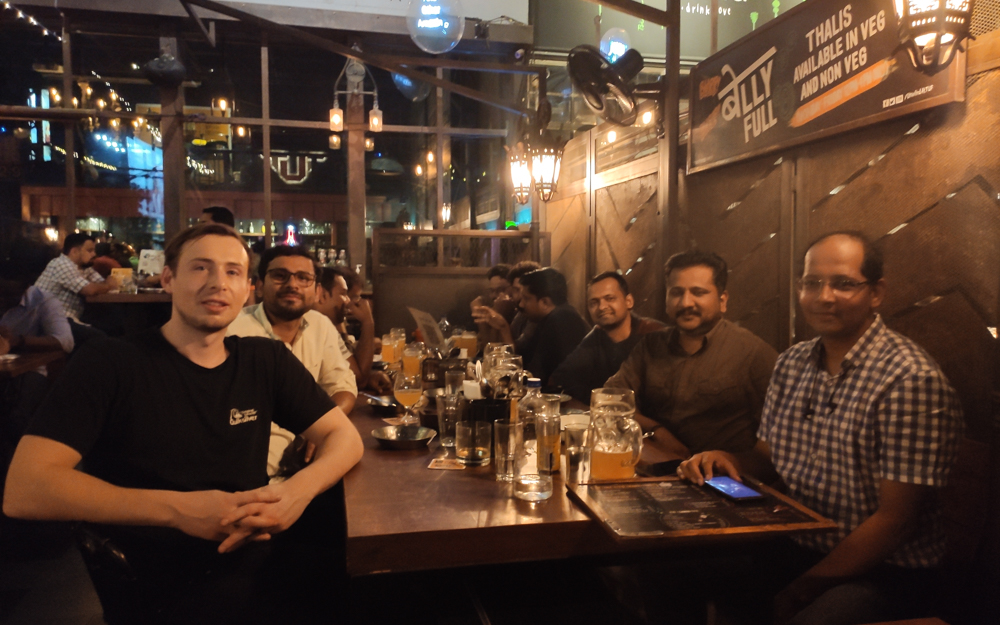
Socializing with our DEV team in Pune. Of course after office hours:) I was given a great opportunity to combine my passion for travel with work.
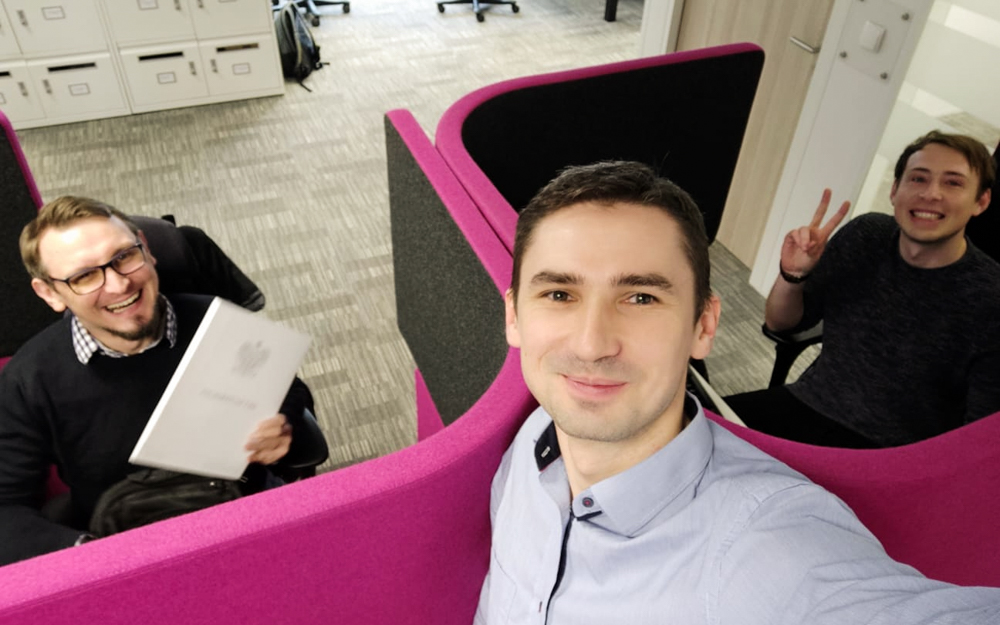
UBS Office in Poland. Yes, I'm the guy in the right corner and sorry I didn't have a better picture from the office :) It's essential to have a good vibe in the team. It plays an important role both in personal and professional life.